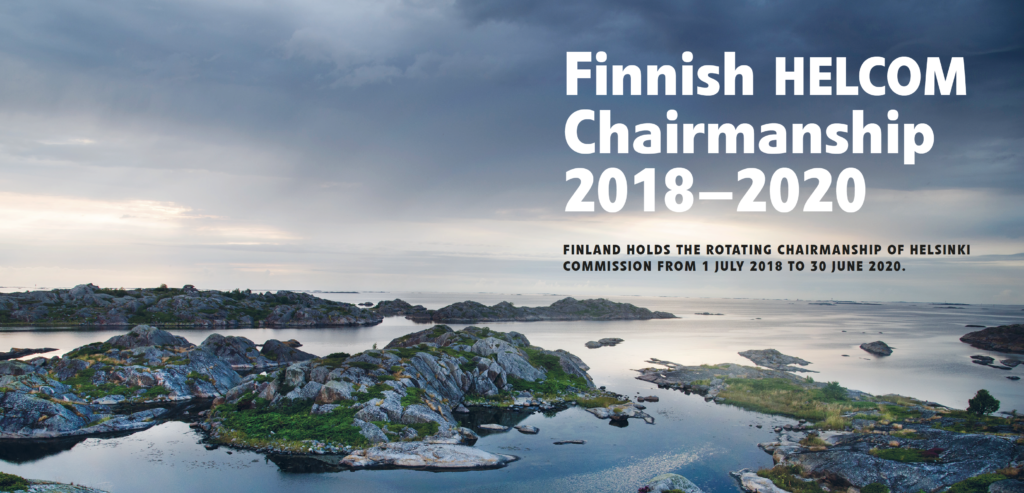Finland 2018-2020

HELCOM’s vision is to reach a healthy Baltic Sea in good ecological status. Finland is committed to fully supporting HELCOM in its efforts towards this goal. The Baltic Sea Action Plan and the outcome of the Ministerial Meetings in 2010, 2013 and 2018 provide the basis for HELCOM’s work in 2018–2020. Building on these, the Finnish Chairmanship will place special emphasis on updating the Baltic Sea Action Plan.
1 – Updating the Baltic Sea Action Plan
HELCOM Baltic Sea Action Plan (BSAP) is HELCOM’s roadmap for achieving a healthy Baltic Sea. Many of the measures and actions of the 2007 Action Plan have been accomplished but good environmental status still remains to be achieved. Ministerial Meeting in 2018 agreed to embark on updating the Action Plan by 2021. This will necessitate a solid scientific-technical background, involvement of the stakeholders, cross-sectorial working mode of the policy-makers and mobilization of funding for measures and actions.
- As Chair of HELCOM, we are committed to leading the updating the Baltic Sea Action Plan and finding common solutions to formulate an ambitious and realistic updated Plan.
2 – Reduction of nutrient inputs and nutrient recycling
Eutrophication is caused by excess input of nutrients to the Baltic Sea and it is still the main environmental problem. HELCOM is a global forerunner with its regional science- based nutrient input reduction targets and burden-sharing system. Inputs of nutrients have declined in parts of the sea but further work is still needed to prevent losses of nutrients to the sea. An important means for this is recycling of nutrients.
- We are committed to facilitating the fine-tuning of the nutrient input reduction system based on the agreed Maximum Allowable Inputs and to developin an effective follow-up system.
- We are ready to dedicate significant effort to formulating Baltic Sea regional strategy on nutrient recycling and related actions for inclusion in the updated BSAP.
3 – Baltic Sea and climate change
Climate change causes multiple impacts on the Baltic Sea and its marine flora and fauna. Change is fast and, as a response, our decisions may need adjustment. The Baltic Sea is part of the carbon cycle but our understanding of its role in the carbon cycle, e.g. its carbon storage services is still meager. HELCOM could play a role in climate change mitigation by working to reduce load of organic carbon to the Baltic and by maximizing storage of carbon in the Baltic Sea.
- We want to ensure that consequences of climate change, such as warming, sea ice decline, anoxia and shifting species ranges will be taken into account when the BSAP will be updated. We also aim to work towards a better understanding of the role of the Baltic Sea in the global carbon cycle.
4 – Synergy between the Agenda 2030 and HELCOM work
Agenda 2030 provides a global framework for HELCOM’s work towards sustainable development in the Baltic Sea region. It also places HELCOM on the global ocean agenda as the major Baltic Sea regional organisation.
- We aim to create and help maintain strong synergistic links between the Agenda 2030 process and HELCOM work
